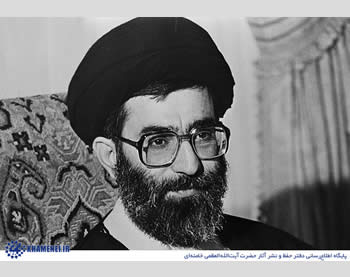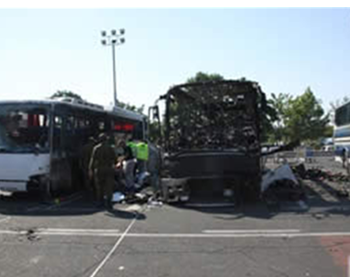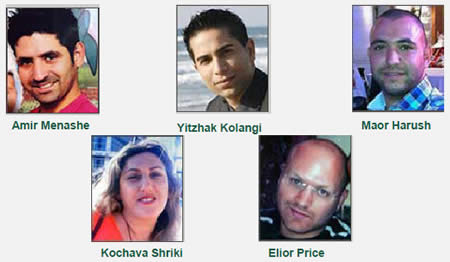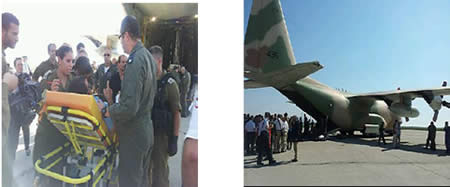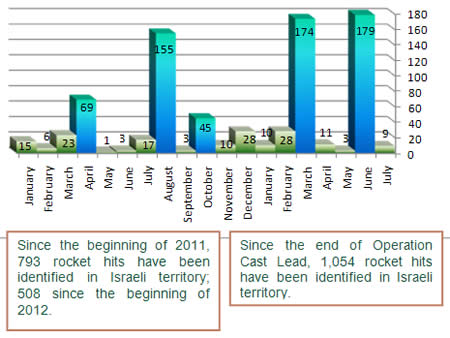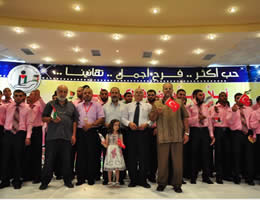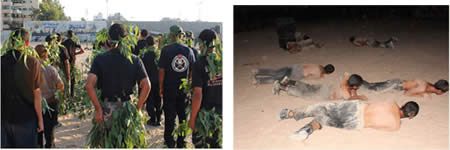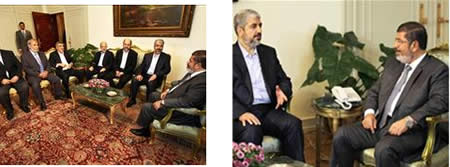Highlights of the week
- Nuclear policy: debate on past compromises rekindled
- Iranincreasingly criticizes Turkey amidst continuing crisis in Syria
- Gender segregation in universities: sharp increase in number of university departments closed to women
- New film documenting the life of Iran’s first woman race car driver causes a stir
In a speech given by the Supreme Leader at a conference of top regime officials held on July 24, Ali Khamenei criticized the conciliatory approach adopted by the reformist government headed by President Mohammad Khatami (2001 – 2005) during the nuclear talks with Western countries, which manifested itself in Iran’s agreement to freeze its uranium enrichment in October 2003. Speaking about the Khatami administration, Khamenei said that it was precisely at a time when top regime officials had adopted a sycophantic approach towards the West and the United States that the president of the United States defined Iran as the “axis of evil”. Khamenei argued that the policy of cooperation with the West and the concessions made during the negotiations with the West had at one point emboldened Iran’s enemies to such an extent that he had to personally intervene in the matter. At that time, according to Khamenei, the Western countries were so audacious that they had objections even when the government agreed to operate as little as three centrifuges at a uranium enrichment facility. If the concessions had continued, Khamenei said, it would not have been possible to achieve any nuclear progress or engage in any kind of scientific activity or initiative in Iran.
The remarks made by Khamenei have rekindled the debate surrounding the nuclear policy during the reformist administration under the leadership of President Khatami. In response to the Supreme Leader’s statement, Abdolvahed Mousavi-Lari, who served as interior minister in the Khatami government, said that the Supreme Leader had been the one directly responsible for the nuclear policy during the Khatami administration. In an interview given by Mousavi-Lari to Fars News Agency, the former interior minister said that Iran’s conduct on the nuclear issue, which was the cause of problems that arose between Iran and the West, had been directly overseen and managed by Khamenei from the very beginning. He noted that a committee had been established under the Khatami administration to deal with all aspects of the nuclear program. The committee reported to Khamenei on a regular basis and all of its activities were carried out in accordance with his instructions. Dr. Hassan Rouhani, who served as chairman of the Supreme National Security Council and Iran’s chief nuclear negotiator during the Khatami administration, was, indeed, in charge of the nuclear case. However, all issues pertaining to the nuclear program—such as who should come, who should leave, what had to be discussed, what had to be accepted or rejected—were part of the regime’s overall strategy, which was set by the Supreme Leader and to which top regime officials were committed (Fars, July 30).
One more reason why the debate over the nuclear policy during the reformist administration has reemerged is the release of Dr. Hassan Rouhani’s memoirs. Rouhani’s book, National Security and Nuclear Diplomacy, has recently been published in its third edition. In the book, Rouhani claimed once again that all decisions made with regard to the nuclear policy and nuclear talks during the Khatami administration had been made with the knowledge and approval of the Supreme Leader (for more details on Rouhani’s book, see Spotlight on Iran, Week of May 9-16, 2012, available at http://www.terrorism-info.org.il/en/article/20332).
Following the Supreme Leader’s statement on the conciliatory nuclear policy pursued during the Khatami administration, the government daily Iran strongly criticized the arguments brought up in Rouhani’s book, including the argument that the nuclear policy during the Khatami administration was supervised by Khamenei. An editorial published by the daily said that Khamenei’s recent remarks completely refute the claims of those who hold the Supreme Leader responsible for the policy of concessions and compromises on the nuclear issue. His remarks show that he was opposed to concessions from day one. However, he refrains from direct involvement in the affairs of the executive branch as long as he does not consider the policy it follows to be a threat or considerable deviation from the path of the revolution. Khamenei wants to let the officials elected by the public implement their own policy so that, when the time comes, they will not lay the blame for its failure on his doorstep, or argue that their policy has failed because they have not been granted sufficient powers. The process of concessions, diplomatic failures, and the cessation of nuclear development escalated to such an extent, however, that eventually the Supreme Leader was forced to intervene and keep the government’s policy in check.
The daily said that, not only does Rouhani continue to justify his unwise conduct, which can even be seen as betrayal, he also takes pride in it and argues that all problems faced by Iran stem from the fact that his policy has been discontinued. The arguments heard from Rouhani and his supporters, which go against the Supreme Leader’s stance of rejecting concessions and supporting continued progress with the nuclear program, are a manifestation of a large-scale plan designed by the enemies of Iran. The plan has a number of stages: increasing the pressure exerted on Iranian citizens by foreign powers just as the current government is about to complete its term, exacerbating the problems and emphasizing the dangers and threats (including the threat of war) faced by Iran, attempting to rewrite history and portray the reform period as one characterized by security and peace, bringing up the claim that the only way to rescue the country is to go back to the previous policy, running a candidate in the presidential elections who will be portrayed as a “savior”, and bringing the nuclear case back to the starting point—that is, suspending the enrichment of uranium once again to “build trust” with the West (Iran, July 29).
This week the Expediency Discernment Council’s Center for Strategic Studies, headed by Rouhani, released a special announcement in response to the editorial published by the daily Iran. In its announcement, the center argued that the editorial was hurtful and groundless, and that it took advantage of the statements recently made by Khamenei for political ends. It is obvious, said the center in its response, that the Supreme Leader’s remarks were primarily aimed at Western countries, which had shown hostility towards Iran and exploited the measures taken by the Iranian regime in 2003 – 2004. According to the Center for Strategic Studies, the author of the article published by the daily Iran used the Supreme Leader’s remarks without understanding them properly and with the purpose of causing damage to top reformist regime officials.
The Center for Strategic Studies mentioned several statements made by Khamenei in 2005 – 2006 which ostensibly show that he held a positive view of the nuclear policy pursued by the reformist regime. On October 10, 2006, Khamenei announced that withdrawal was an accepted tactic in times of war, and that the policy of concessions and withdrawals pursued by Iran in 2003 – 2004 had been necessary. On October 21, 2005, Khamenei announced that all the measures taken in the context of the nuclear program had been the result of cooperative deliberation and consultation. On August 15, 2005, Khamenei said that he had taken part at a meeting of the members of Iran’s nuclear negotiating team, commended them for their performance, and thanked them for doing a good job.
In its announcement, the Center for Strategic Studies stressed once again that all the measures taken by the Khatami government with regard to nuclear policy, including the Tehran Declaration, the Brussels Agreement, and the Paris Agreement had been agreed upon during meetings attended by all top regime officials. Instead of trying to divert public opinion and spreading unfounded and hurtful rumors, the current conditions call for action to promote national unity, the interests of the regime, and national security. Now, more than ever, social solidarity and national unity are needed to overcome the dangerous situation which the country is facing, the announcement said. Stirring discord and creating a toxic atmosphere serves the enemies of the nation (Aftab News, August 5).
Meanwhile, the conservative website Mashregh also voiced criticism of Rouhani following the publication of his memoirs. A commentary article published by the website said that the release of the book is particularly significant now that the nuclear talks are at the top of the international agenda. The book, however, has numerous weak points. Some of the weak points are technical (there is no index or explanations of technical terms pertaining to the nuclear program which the book mentions, a number of photos do not match the nearby text, and so forth), and some are fundamental.
Mashregh argued that, in his book, Rouhani took an unfounded, optimistic stance towards the West. This stance, according to the article, can be seen in the book’s recurring criticism of the pessimism expressed by top Iranian officials with regard to the West—and such criticism has been detrimental to Iran, Mashregh said. Reality has proven, the website argued, that the world powers only want to see the Islamic revolution defeated. During the negotiations he held with the West, Rouhani himself should have arrived at the conclusion that Western countries would not tolerate a nuclear Iran, demanding that its nuclear program be completely frozen. In the book, Rouhani himself admitted that Western leaders had expressed lack of willingness to recognize Iran’s right to produce nuclear fuel.
The criticism article went on to say that the association made by Rouhani in his book between the economic problems facing Iran and the concerns of the nation’s citizens on one hand and the nuclear issue on the other is dangerous and unnecessary. Making such an association serves the opponents of the regime, who use it to exert pressure on Iran. His explicit mention of the fears and concerns expressed by top regime officials during the nuclear talks also does not deserve to be published. For example, in his book Rouhani directly cites remarks made by the Supreme Leader on how Iran should conduct itself vis-à-vis the West, and on concerns voiced by top regime officials about the nuclear case being referred to the U.N. Security Council. Such explicit mention can also serve the interests of the regime’s opponents. The criticism leveled by Rouhani against current government officials, including President Ahmadinejad, and his allegations that they have adopted a policy based on illusions and lack of experience is likewise inappropriate, the article said (Mashregh, July 25).
Iran increasingly criticizes Turkey amidst continuing crisis in Syria
In recent days, shortly after last week’s visit to Tehran by the Turkish deputy foreign minister and a telephone conversation between the foreign ministers of both countries on the developments in Syria, Turkey’s regional policy has come under increasing criticism in Iran.
Last weekend top conservative cleric Ayatollah Nasser Makarem Shirazi accused Turkey that, through its policy, it serves Israel’s interests in the region. Speaking at a religious ceremony held on the occasion of the month of Ramadan, Makarem Shirazi said that, judging by the past actions of Turkey’s leaders, it had appeared that Turkey joined Iran in standing up to Israel and supporting the Palestinian people. It is now becoming apparent, however, that, contrary to that first impression, Turkey continues to hold direct relations with Israel and has backed down from its earlier stance. The top cleric strongly criticized the supply of weapons from Turkey to the Syrian opposition, warning that, should the current Syrian regime fall, the result will be an Israeli takeover of the Middle East (www.snn.ir, August 2).
The criticism voiced by the top cleric joins strong-worded editorials condemning Turkey that have been published in the Iranian press these past two weeks. The daily Jomhuri-ye Eslami discussed the reports that have surfaced in Turkey’s media about a possible improvement in Turkish-Israeli relations. The daily claimed that both countries are working to improve their relations and continue holding contacts at the highest possible level. The war of words that has been fought between politicians in both countries for the past two years is simply intended to create a positive image of a “new Turkey” among Muslim countries. In practice, the relations between Turkey and Israel proceed at the highest strategic levels. According to the daily, a top Israeli official even admitted in an interview given to a Turkish newspaper that, in the past two years, the two countries have continued holding contacts and consultations at the highest levels, and that the channels of communication between them have remained open in light of the common interest that these countries share. This state of affairs, Jomhuri-ye Eslami said, indicates that even though there are talks in Turkey about cutting off its political relations with Israel, they are only intended to improve the standing of the Turkish ruling party with domestic and regional public opinion and have nothing to do with reality.
Turkeyhas made tactical changes in its regional and international policy to adapt it to the new conditions in the region, snatch the flag of Palestine from Iran’s hands, and appropriate the banner of resistance against Israel. The president of Turkey imposed four conditions for normalizing the relations with Israel: an apology from Israel for the Mavi Marmara incident, compensation to the victims’ families, international inquiry into the incident, and ending the siege on the Gaza Strip. As time went by, these conditions shrank to just one: an apology from Israel. Now, however, even this condition has been removed, and Turkey is willing to normalize its relations with Israel even though the latter has already announced that it has no intention of apologizing.
Erdogan’s policy demonstrates that there is no significant difference between his policy and the one pursued by his predecessors, the only difference being that the secular generals took pride in their relations with Israel while Turkey’s politicians are currently taking a two-faced position. Erdogan’s efforts at mediation between Israel and the Palestinians are intended to leave the countries of the anti-Zionist resistance front with less maneuvering room. Allowing NATO to continue using its bases on Turkish soil and deploy an American missile defense system to be used against Iran is yet another manifestation of Turkey’s pro-Western and pro-Zionist policy. The Turkish policy is not limited to its ongoing cooperation with the United States and Israel. At the behest of the West, Turkey causes damage to its neighbors, particularly Iraq and Syria, by helping the Al-Qaeda terrorists. The coordination between Turkey and the West on the developments in Syria has put an end to Turkey’s claims about its commitment to fighting against Israel. The Turkey-Syria border has become a base for terrorists and agents of the Mossad and the CIA. The assistance provided by Erdogan to the struggle against the Syrian regime, which stands at the forefront of the struggle against the Zionists, is an indication that he continues to follow the path of Turkey’s secular leaders in an Islamic guise.
The day is not far off, Jomhuri-ye Eslami concluded, when the leaders of Turkey will come to realize that their country’s cooperation with the policy of the United States and the deployment of a defense system intended to protect the “Zionist regime” in the region comes at the cost of hostility with its Muslim neighbors and will eventually come back to haunt it. This is already understood by the people and political parties of Turkey; unfortunately, however, the same cannot be said of Turkey’s self-styled Islamist politicians (Jomhuri-ye Eslami, July 30).
The daily Siyasat-e Rooz also strongly criticized Turkey and its policy towards Syria. An editorial titled “Turkey can no longer be trusted” said that, being a Muslim country, Turkey could have had a positive influence on the developments in the region. However, the policy it is currently pursuing in the region, particularly towards Syria, will be a headache for Turkey and lead to domestic conflicts, popular protests, ethnic and religious clashes, and eventually result in the country’s dissolution.
Turkeyhas provoked numerous differences of opinion among the region’s Muslims, which is evident in its cooperation with the U.S.-led conspiracy that led to the dissolution of former Yugoslavia. The revolutions in the region have given the United States and the West an opportunity to stir separatism in the region by creating ethnic and religious conflicts. By conducting itself the way it has towards Syria, Turkey has lost the trust of other countries. Turkey under the secular administration was deserving of more trust than Turkey under Erdogan, Siyasat-e Rooz argued, because at least then it did not pretend to be following an Islamic policy.
The daily warned that there is no guarantee that, in the future, Turkey will not treat Iran the way it is now treating Syria. While Iran does enjoy military strength and popular support that will make it impossible for Turkey to plot against it, trust in neighboring countries is important, and Turkey has lost this trust. It can no longer be relied on as a friendly neighboring country, the article concluded, and if it persists with its policy, the day is not far off when it will find itself in chaos (Siyasat-e Rooz, July 30).
The Farda website also criticized Turkey’s current policy, arguing that even though the ruling party in Turkey is thought of as Islamist, its policy has nothing to do with Islam and it is in fact striving to extend its regional influence. A commentary article published by the website said that it is reasonable to believe, as some commentators do, that the Islamism of Turkey’s current government and Erdogan is in fact the manifestation of an American plan intended to establish an ostensibly Islamic faction that will support the Palestinians and the Islamic world, but will in fact stand against the Islamic wave in the region and become an opponent of the Islamic revolution. If Turkey truly did support the Palestinians and the Muslim nations, it would cut off its ties with Israel instead of fighting Syria, the leader of the anti-Israeli struggle, and it would provide assistance to the popular uprising in Saudi Arabia and Jordan instead of remaining indifferent to the suppression of the uprising in Bahrain (Farda, August 4).
Gender segregation in universities: sharp increase in number of university departments closed to women
Mehr News Agency reported this week that 36 universities in Iran have closed 77 fields of study to women this year, particularly engineering programs. According to the report, there has been a sharp increase this year in the number of fields of study to which women are not permitted to apply compared to the previous year, when women could not register for only two fields of study (mine engineering and agricultural engineering). The University of Tehran, for instance, is not accepting women to two engineering departments; the University of Arak is not accepting women to the departments of English, technological education, computer science, chemistry engineering, industrial engineering, construction engineering, mechanical engineering, agricultural engineering, and chemistry; the University of Esfahan is not accepting women to the departments of political science, accounting, business administration, public management, industrial management, electrical engineering, construction engineering, transportation engineering, and English translation; the University of Ardabil is not accepting women to the departments of public psychology, geography and city planning, business administration, statistics, accounting, theoretical physics, nuclear physics, electrical engineering, construction engineering, computer engineering, mechanical engineering, agricultural engineering, and others (Mehr, August 6).
A spokesman for the Petroleum University of Technology, which has a number of branches across Iran and does not accept women to several departments, said this week that the university is supposed to deliver graduates in accordance with the needs of the Petroleum Ministry and its affiliated companies, which have stated this year that they currently do not require women graduates, only men graduates. He added that those employed in the petroleum industry work in difficult conditions that are inappropriate for women, and that public opinion polls conducted by the university among women students who attend it indicate that they are not satisfied with the studies in the departments to which they have been accepted (ISNA, August 6).
At the same time, HRANA, a news agency affiliated with activists for human rights in Iran, reported this week that over 60 universities across Iran will become gender segregated in the coming year, and that there will be separate classes for men and women in nearly 20 percent of academic departments (www.hra-news.org, August 5).
These reports are indicative of the increasing efforts made by the authorities to increase gender segregation in higher education institutions, bringing it in line with what is practiced in Iran’s primary and secondary schools. In recent years top Iranian officials and conservative clerics have called for the expansion of gender segregation in universities. In November 2009, Habib Mohammad-Nejad, the deputy on research affairs of the Supreme Leader’s representative to the universities, said that many studies indicated that co-education in universities was not beneficial to the students’ success, arguing that the students’ grades would improve as a result of gender segregation in universities. He suggested conducting a pilot study in a large university whose scientific level is high to test the impact of gender segregation on academic success rate. His views were echoed by the Supreme Leader’s representative in Tehran’s Khaje Nasir Toosi University of Technology, who said that co-education led to the formation of dangerous connections between male and female students. He noted that young people have urges and therefore cannot sustain normal relations with each other.
In addition, more and more voices are calling for a limit on the admittance of women to universities on the backdrop of the ongoing increase in the share of women among the total number of students in Iran. The relatively high proportion of women (who make up over 60 percent of Iran’s total student population) compared to men in higher education institutions is to a large extent the result of the fact that many men prefer to enter the workforce as soon as they complete their secondary education instead of applying to universities, many of whose graduates remain unemployed. Many women, on the other hand, consider academic education to be a way to achieve social mobility.
In recent years some of the universities have started setting admission quotas for women. In 2006 Iran’s health minister decided to put a limit on the number of women who could be accepted into medicine programs at 30 universities and medical colleges across the country. The minister claimed that restrictions needed to be imposed on the number of women accepted into medicine programs because the universities were unable to provide sufficient facilities and dormitories for women students. In 2007 a number of Majles members submitted a bill to impose a quota of at least 30 percent for both men and women in university programs. According to the Majles members who submitted the bill, the ongoing increase in the number of women studying in the universities could jeopardize Iranian society and the “sanctity of the family”. They argued that, among other things, the increase in the proportion of women students led to an increase in the age of marriage, growing divorce rates, and a waste of state funds, seeing as many women university graduates cannot go on to work in their chosen field because their father or husband will not let them do so. The bill was also supported by a number of women Majles members, who said that traditional gender roles had to be respected when choosing areas of study for men and women (Rooz Online, February 6, 2007).
A report released in 2007 by the Majles Research Center showed that there was 23-percent increase in the number of women applying to universities in the past two decades, and that the number of women who successfully passed the university entrance exams doubled. The report warned that this trend could lead to social, economic, and cultural imbalance between women and men, and that it created various problems, such as the need to secure the university dormitories and protect the physical well-being of the women students against social dangers (http://rc.majlis.ir/fa/report/show/733423).
New film documenting the life of Iran’s first woman race car driver causes a stir
Over the past few weeks, public and political controversy has been simmering over a new Iranian film project. Javad Shamaqdari, the deputy minister of Islamic guidance on cinema affairs and chairman of the Cinema Organization, recently confirmed that Asadollah Niknejad, an Iranian-born film director who has lived in Los Angeles for several years, is currently directing the documentary film Laleh. The film follows the life of Laleh Seddiq, Iran’s first woman race car driver, who is nicknamed “Little Schumacher” after the German Formula 1 world champion Michael Schumacher.
The film’s budget is estimated at 70 billion rials (over 3.5 million dollars), a significant portion of which will come from the Center for Documentary and Experimental Cinema in Iran. The chairman of the center recently reported that it will provide 25 billion rials towards the cost of the movie, and that U.S. and Canadian companies will pick up the rest of the tab.
According to the creators of Laleh, the film is intended to counter the negative image of Iran in Western films and show a different picture of Iranian women abroad. However, the content of the film, the fact that it has been handed to Niknejad to direct, and its enormous budget compared to Iranian films have come under intense criticism.
Hossein Shariatmadari, the editor-in-chief of the daily Keyhan, strongly condemned the film project and referred to its creator, Asadollah Niknejad, as a “creator of pornographic movies”. An editorial published by Shariatmadari said that a girl who takes part in car racing cannot serve as a symbol and example for the Iranian woman, and that Laleh Seddiq is exactly the kind of model that the United States and its allies wish for Iran. It is inappropriate to give five billion tomans from the national budget to a creator of pornographic movies who lives in Hollywood so that he can realize the destructive Western values, Shariatmadari wrote. Offending the image of the Iranian Muslim woman is not the right way of fighting the negative propaganda in which the United States and Western countries engage against Iranian women (Keyhan, July 23). Hojjat-ol-Eslam Mohammad Hassan Rahimian, the Supreme Leader’s representative to the Martyrs Foundation, criticized the movie as well. He said that there are many mothers and martyrs’ wives living in Iran who are a model for Iranian Muslim women, and who can be shown to the world (Fars, August 2).
Members of the Majles Culture Committee, which held a special meeting on Laleh attended by the minister of Islamic guidance and his deputy for cinema affairs, also had reservations about the new project. According to committee member Ahmad Salek Kashani, fragments of the film shown to committee members indicate that it is not compatible with the values of religion, Islamic culture, and the Islamic dress code for women. He also said that he opposed the decision to have the film directed by Niknejad and allocate such a big budget for its production (Mashregh News, August 1).
Ali Motahari, also a member of the committee, argued that Islamic Guidance Minister Mohammad Hosseini and his deputy, who had appeared before the committee members, were unable to convince them that the film was necessary. He said that all the committee members are against the movie, being of the opinion that its content is inappropriate and that a race car champion cannot be portrayed as a symbol of the Iranian woman. Motahari even threatened to take action to impeach the minister of Islamic guidance if his ministry did not agree to cancel the project.
The new movie is also drawing criticism from the local film industry due to its high cost. In press interviews given in recent days, several filmmakers claimed that while the Iranian cinema is in a severe economic distress and the Ministry of Islamic Guidance is unable to keep the promises it has given to Iranian filmmakers, it is unreasonable to allocate such a big budget towards the making of the film Laleh.
President Ahmadinejad’s name was dragged into the controversy surrounding Laleh when it was reported that he had met with Asadollah Niknejad and entrusted him with the direction of the film. Jamal Shurjeh, a member of the Supreme Cinema Council, said in an interview to Mehr News Agency that Niknejad had met with Ahmadinejad during one of his annual visits to the U.N. General Assembly in New York, pitched him the idea for the film, and gained his support for the project (Mehr, July 18).





































